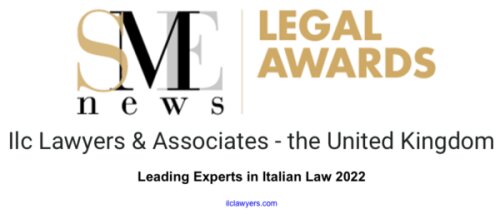Best Structured Finance Lawyers in Palermo
Share your needs with us, get contacted by law firms.
Free. Takes 2 min.
List of the best lawyers in Palermo, Italy
About Structured Finance Law in Palermo, Italy
Structured finance refers to complex financial transactions that are typically designed to help businesses, financial institutions, or public bodies manage risk, raise capital, or optimize their financing arrangements. In Palermo, Italy, structured finance has become increasingly significant, especially in sectors like real estate, infrastructure development, and business expansion. Local financial institutions often use tools such as securitization, project finance, asset-backed securities, and syndicated loans to meet their commercial objectives. Understanding the legal framework governing structured finance in Palermo is essential for both institutional and individual investors to ensure compliance and mitigate risks.
Why You May Need a Lawyer
Engaging in structured finance transactions can be complex due to regulatory requirements and the involvement of multiple parties. You may need a lawyer specializing in structured finance in Palermo for several reasons, such as:
- Drafting or reviewing securitization agreements or asset-backed securities
- Structuring and negotiating syndicated loans or project finance agreements
- Ensuring compliance with Italian and EU financial regulations
- Managing risks linked with cross-border transactions
- Resolving disputes arising from complex financing arrangements
- Advising on tax implications and risk assessment of new structures
- Guidance through due diligence and compliance checks
Local Laws Overview
Structured finance in Palermo, as in the rest of Italy, is shaped by both national regulations and European Union directives. Key legal aspects include:
- Italian Civil Code - Governs contracts, obligations, securities, and corporate law relevant to structured finance
- Law 130/1999 - Securitization Law that provides a framework for asset-backed transactions and defines SPVs (Special Purpose Vehicles)
- Bank of Italy Regulations - Sets guidelines for banking and non-banking financial intermediaries handling structured products
- Consob Regulations - Oversees investor protection, transparency, and the conduct of financial markets
- EU Directives - Such as the Capital Requirements Directive and the Markets in Financial Instruments Directive (MiFID)
Frequently Asked Questions
What is structured finance?
Structured finance involves creating tailored financial instruments or transactions, often using special purpose vehicles (SPVs), to help manage complex funding or risk management needs for businesses or projects.
What types of transactions are common in structured finance in Palermo?
Common transactions include securitization of loans or receivables, project financing for infrastructure, asset-backed securities, and syndicated loans for large corporates.
Who regulates structured finance activities in Palermo?
Structured finance activities are mainly regulated by the Bank of Italy, Consob (for securities), and, when relevant, European Union regulatory bodies.
Does Italian law allow the use of SPVs?
Yes, Italian law, particularly Law 130/1999, recognizes and regulates the use of special purpose vehicles as key instruments for securitization and structured finance transactions.
Are there specific disclosure requirements in structured finance?
Yes, there are specific disclosure obligations under Italian law and EU regulations to ensure transparency about the nature, risks, and parties of the transaction, especially for offerings to the public.
What taxes apply to structured finance activities in Palermo?
Taxation depends on transaction structure and the parties involved. Often, SPVs benefit from special tax rules to promote securitizations, but a lawyer can advise on specifics such as VAT, capital gains, and stamp duties.
How can risks be managed in structured finance?
Risks are managed through careful structuring, use of collateral, third-party guarantees, and compliance with legal and regulatory frameworks. Legal advice is vital for risk identification and mitigation.
Can foreign investors participate in structured finance in Palermo?
Yes, foreign investors can participate, but may be subject to additional regulatory scrutiny and reporting, especially if cross-border transfers or capital inflows are involved.
What roles do local authorities play in structured finance deals?
Local authorities may be involved in project finance for infrastructure or public-private partnerships, overseeing compliance and authorizing certain aspects of the deals.
How do I choose a qualified structured finance lawyer in Palermo?
Select a lawyer or firm with a strong track record in finance law, deep knowledge of local and EU regulations, and experience with transactions similar to yours. References from local financial institutions can also be helpful.
Additional Resources
Below are some key resources and organizations that can support individuals or businesses seeking legal advice in structured finance in Palermo:
- Ordine degli Avvocati di Palermo - Palermo’s Bar Association, which lists qualified lawyers in finance law
- Banca d'Italia - Filiale di Palermo - Local branch of the Bank of Italy for regulatory guidance
- Consob - The Italian Securities and Exchange Commission for regulatory information
- Camera di Commercio di Palermo - Palermo Chamber of Commerce for business registration and compliance advice
- Associazione Italiana per la Finanza Strutturata - Industry association supporting best practices in structured finance
Next Steps
If you are considering a structured finance transaction in Palermo or need legal assistance:
- Assess your legal needs and gather all relevant documents
- Contact a specialist lawyer or law firm experienced in structured finance
- Consult with the Ordine degli Avvocati di Palermo for recommendations
- Prepare detailed questions about your intended transaction and compliance needs
- Ensure your chosen legal professional has experience with Palermo and Italian regulatory requirements
- Proceed with initial consultations to evaluate potential legal risks, transaction structure, and compliance obligations
Lawzana helps you find the best lawyers and law firms in Palermo through a curated and pre-screened list of qualified legal professionals. Our platform offers rankings and detailed profiles of attorneys and law firms, allowing you to compare based on practice areas, including Structured Finance, experience, and client feedback.
Each profile includes a description of the firm's areas of practice, client reviews, team members and partners, year of establishment, spoken languages, office locations, contact information, social media presence, and any published articles or resources. Most firms on our platform speak English and are experienced in both local and international legal matters.
Get a quote from top-rated law firms in Palermo, Italy — quickly, securely, and without unnecessary hassle.
Disclaimer:
The information provided on this page is for general informational purposes only and does not constitute legal advice. While we strive to ensure the accuracy and relevance of the content, legal information may change over time, and interpretations of the law can vary. You should always consult with a qualified legal professional for advice specific to your situation.
We disclaim all liability for actions taken or not taken based on the content of this page. If you believe any information is incorrect or outdated, please contact us, and we will review and update it where appropriate.











